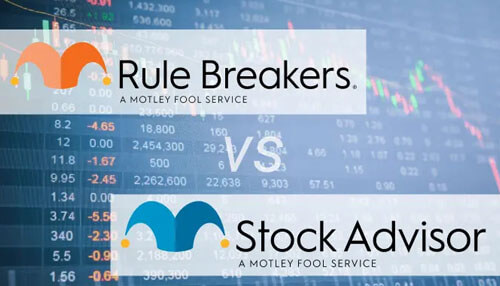The Motley Fool was founded in 1993 by brothers Tom and David Gardner as a traditional print newsletter in a backyard shed in Alexandria, Virginia. In 1994, an April Fool’s joke designed to teach an investing lesson put The Motley Fool on the map. In 2002 they began their primary service, Stock Advisor, and two years later, added Rule Breakers.
The Motley Fool’s name comes from William Shakespeare’s play “As You Like It”. The court jester, known as the Fool, could speak the truth to the king and queen using humor to instruct as much as to be amusing. The Fool was never afraid to question conventional wisdom.
In the same way, The Motley Fool aims to speak the truth about money and investing and to make financial advice accessible to people of all backgrounds and experience levels.
Their purpose is to make the world smarter, happier, and richer. They have over one million members subscribing to their services. They believe that investing in great businesses, for the long term, is the most effective path to wealth.
Motley Fool recommends that you hold at least 25 stocks for five years or more to benefit from its research services. This gives you some protection should a couple of stock picks perform poorly.
With The Motley Fool being so successful for so long, for many investors, the question is not whether they should follow The Motley Fools’ advice, but which service should they use, Rule Breakers or Stock Advisor?
Rule Breakers
This service began in 2004 and has over 100,000 subscribers who receive 2 stock picks each month. It is an aggressive investment philosophy to choose stocks believed to have high growth potential, but they can be volatile.
In addition to its twice-a-month stock recommendations, announced on the second and fourth Thursdays of the month, Rule Breakers issues a “Best Buys Now” list. They choose five best buys around the middle of every month, along with an in-depth explanation of why they believe these are good investment opportunities.
Once a year, Rule Breakers publishes a list of ten “Starter Stocks,” which they believe represent a good foundation for your portfolio. These stocks are more conservative and aim to offset the volatility of their monthly stock picks.
Since its inception in 2004, Rule Breakers’ average return is 242% compared to the S&P 500 of 119%.
The annual subscription is $299 but you get the first year for just $99. With a focus on high-growth stocks, Rule Breakers is best suited to investors with a preference for high-risk investments.
Stock Advisor
Stock Advisor searches every sector of the market and picks two stocks a month on the first and third Thursday of the month. Some picks have included Amazon, Walt Disney, and Netflix, which were not performing that well at the time they were picked.
Often their picks are mature companies that Motley Fool predicts still have a significant upside. These companies not only earn you great returns, but they come with lower volatility than many other “hot” stock picks.
In addition to each stock pick, this service also includes 5 “Best Buys” chosen from:
- Timely Stocks – favored investment opportunities to hold for at least five years, updated twice a month (10 stocks)
- Foundational Stocks – companies with solid track records to strengthen any portfolio, updated quarterly (10 stocks)
- Exchange-Traded Funds (ETFs) – ETFs are recommended to hold for broad concept investing, updated annually (5 ETFs)
This Best Buys list is arguably even more valuable than Stock Advisor’s twice-monthly picks. They help you build a better-diversified portfolio.
Stock Advisors’ average return since 2002 is 504% compared to the S&P 500 of 138% over the same period.
The annual subscription is $199 and only $99 for the first year, with a focus on a diversified portfolio of high-performing stocks, Stock Advisor is best suited to investors seeking moderate risk.
Motley Fool Rule Breakers vs Stock Advisors
So which service is best?
Let’s look at three key elements:
1. Cost
Stock Advisor is $100 cheaper each year, but in the world of investment returns, that’s not exactly big money. Both services are less expensive than most competitors.
2. Investment Strategy
While Rule Breakers focuses on high growth, high-risk stocks primarily in emerging technology stocks, Stock Advisor has a better risk/reward ratio and picks winners across all sectors, providing greater diversification
3. Performance
Stock Advisor has the better track record having consistently outperformed the S&P 500 index by more than four times, whereas Rule Breakers has managed to double the index returns.
Stock Advisors looks like the better option when comparing the two services by these three key elements.
However, many other factors come into play when deciding which service is better for you. Just a few of these factors come with the answers to these questions:
- What other investments and assets do you already own?
- How much money do you have available to invest?
- How would you react to large falls in the value of some of your stocks?
- Are you an experienced investor?
The more experienced investor will be capable of fully understanding the information provided with each stock pick and therefore able to choose which individual picks best fit in with their overall investment portfolio and investment goals.
If you can buy them both, that is a great option, but if you can only afford one, for most investors, Stock Advisor is your best option.
You can get started with either service through this link.



